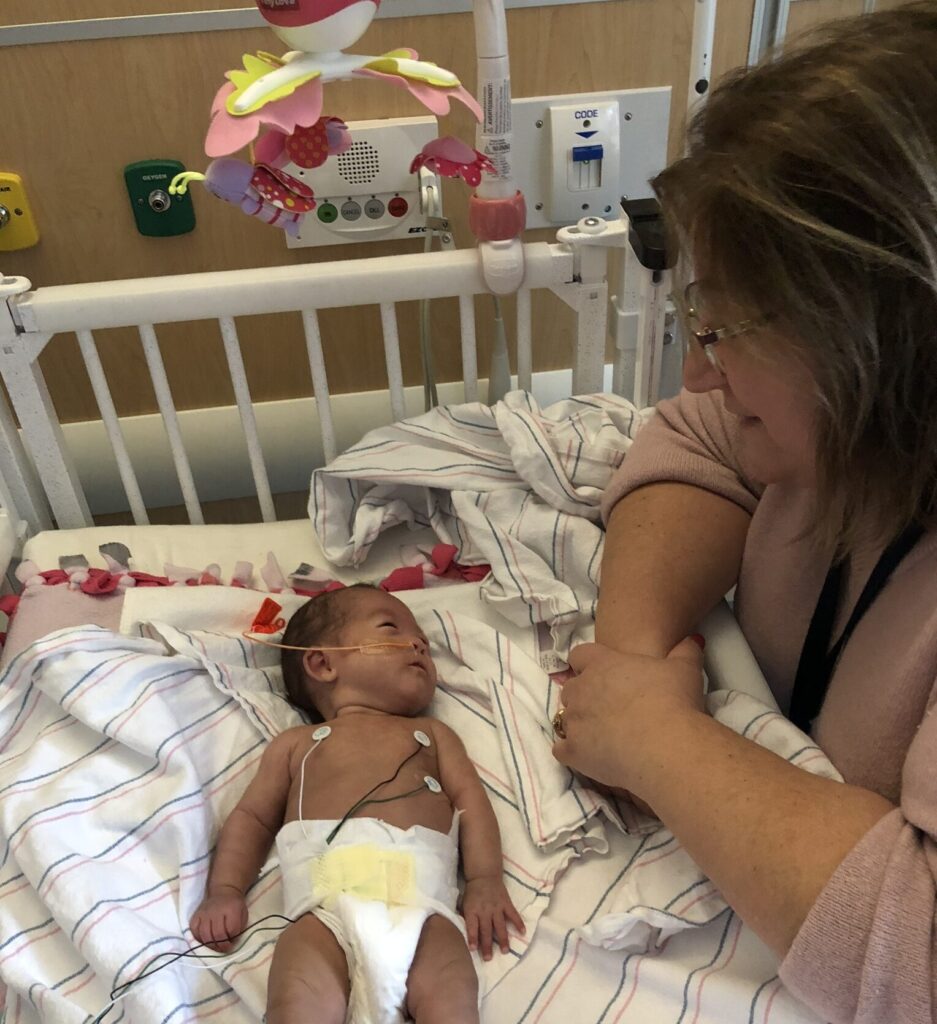Yes. The BIS is a small device that has electrodes placed on your baby’s hand and foot. These electrodes are similar to the ones already on your baby’s chest. They run a weak, painless current through baby’s body. This takes less than 5 minutes and will take place in your baby’s room.
When the study diet ends, your baby will go back to the normal NICU diet. At this time, your baby’s nurse will be in charge of adding the regular fortifier to your baby’s milk. You will still see our study team because we will coordinate your baby’s MRI and last PEA POD. We will also sit down with you to complete some questionnaires before you go home. We would like to check in with you at 4 and 12 months after baby’s original due date to ask you some questions. We will also see you in the Follow Up Clinic 2 years after baby’s original due date.
You have the right to stop participating at any point during the study. If you decide you no longer wish to participate, your baby’s care will not change. Your baby’s nurses will prepare your baby’s milk as they would for all other babies not in the study.
It is okay if you decide that transferring to another hospital is best for you and your baby. Because this study is only at Brigham and Women’s Hospital, your baby cannot participate while at another hospital. If you decide to transfer, you will be removed from the study and your baby’s diet will return to the standard NICU diet.
No, Nourish has completed its in-NICU recruitment and will now focus on seeing enrolled participants in the CCD follow-up clinic!


